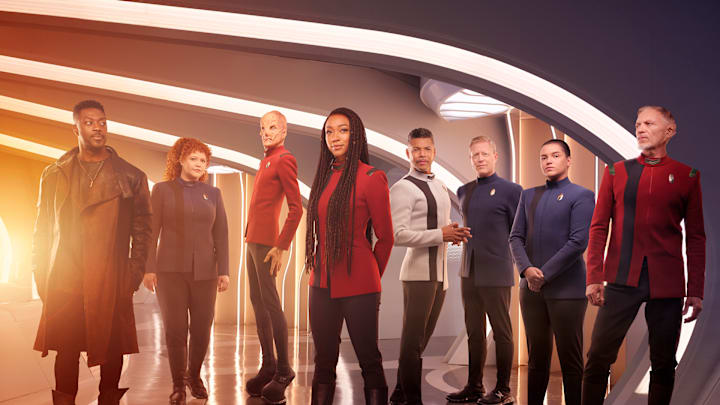Star Trek is what it is. it's a morality play set against the backdrop of space, where different species and races try to co-exist and often fail to do so. In their attempts to create harmony among one another, things happen. Famines, war, illnesses, and other things that we in the 21st century can comprehend. After all, we still deal with all that now.
It's a franchise that seeks to answer tough questions without ever giving us the "right" answer, and due to that, it has become a franchise that has thrived. In recent years, however, the desire to subvert fans' expectations has become trendy. Every franchise in mainstream media wants to be darker, grittier, edgier, and less like what fans fell in love with and more like something completely different.
Why? Because more and more creators are injecting their personal ideals into multi-billion dollar franchises, whose fanbases were built by completely different people. It's because of this, that these beloved franchises often twist and morph from what it was into something strange and unusual.
Star Trek is no different, while some shows like Discovery and Strange New Worlds essentially follow the Trek code, other parts of the franchise like Lower Decks and the upcoming Section 31 film seem to reject it. Apparently that's the idea, as more than one person has said that the goal for Section 31 is to make it different from Star Trek.
If that's the goal, however, why make it a Star Trek film at all? The director of the film, Olatunde
Osunsanmi seems to believe that it not being like conventional Star Trek is a good thing, telling people at WonderCon (via TrekMovie) that Section 31 is different from the rest, saying;
"“All these Treks are a little bit different. This one is definitely different, but it’s still Trek and we just finished shooting just a week and a half ago. And it is awesome.”"
This echo's Section 31 screenwriter Craig Sweeny, who was quoted as saying (via TrekMovie)
"“Famously, there’s a spot for everybody in Roddenberry’s utopia, so I was like, ‘Well, who would be the people who don’t quite fit in?’ I didn’t want to make the John le Carré version, where you’re in the headquarters and it’s backbiting and shades of gray. I wanted to do the people who were at the edges, out in the field. These are not people who necessarily work together the way you would see on a ‘Star Trek’ bridge."
If you keep making something that is, in essence, defiant of what Star Trek is, why bother? Make something new, and market it as such. There are only so many ways to make a cheeseburger. Sure you can add any type of toppings you want, and cook the beef any way you want but at the end of the day, everything centers around a piece of beef on some buns. Anything that doesn't include beef on buns is no longer a cheeseburger. So if you go to a cheeseburger place, and they give you tuna in a wrap, and call it a cheeseburger, you have every right to be mad at the false advertisement.
That feels like what's happening with Section 31. We keep getting told it's Star Trek, because it's in the name, but everyone who's working on it keeps mentioning how different and unlike Star Trek that it actually is.
If you're not making Star Trek to be Star Trek, why would Star Trek fans want to see it?
How off-center do you have to be before you realize that what you're making is Star Trek in name only? That's why Section 31 is sounding more and more like a film that is Star Trek in name only and if the only attachment to Gene Roddenberry's vision is the name, maybe it's best we don't make such things.
